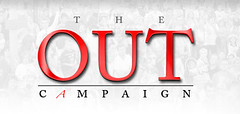In Part I of my discourse on morals, I have attempted to explain partially, at least, why morals arising from religion are, at best, arbitrary and own their allegiance to the respective religions and the tribes which subscribes to the respective religions.
In part II, I would like to elucidate the reality behind the moral issue, and how, as a transcending species, human morality must emerge from mere instinct to perhaps take a larger role in dictating our actions from a more noble viewpoint, instead of being a mere pawn to be debauched by religion's manipulative ways.
Morals, as defined by the Oxford's Dictionary:
• adjective 1 concerned with the principles of right and wrong behaviour and the goodness or badness of human character. 2 conforming to accepted standards of behaviour. 3 psychological rather than physical or practical: moral support.
• noun 1 a lesson about right or wrong that can be derived from a story or experience. 2 (morals) standards of behaviour, or principles of right and wrong.
Morality & Its True Origins
In one of my earlier posts (link here), one of the more intriguing observations made by scientists were the observation of moral rules that seemed to be laid down by alpha members of the various monkey species. While some would question the veracity of such observations with homo sapiens, the fact that a species that shares mores than 98% of our genes can exhibit some form of codified, moral behavior completely debunks the theist's assertion that only the pious can behave righteously. Far more important, however, is that even mere religion is derived from a more primitive, inane sort of morality, one which I will dub "Tribal Morals".
Tribal Morals: The Beginnings of Morality?
The concept behind morality, at least from the animistic sense, can be summed up in one sentence: "You scratch my back, and I will scratch yours."
When we observe herd animals, particularly apes, group cooperation and cohesion is vital for the survival of the entire herd. A group that stays together has a far higher chance of survival: prairie dogs take turns to perform sentry duty to warn their feeding compatriots before the unwelcome and deadly eagle swoops down upon one of its own and picks it up with the eagle's deadly talons. The lion pride which hunts in a team has a far higher success rate than a lone tiger on the prowl.
Besides safety and food concerns, animals that live in a cooperative setting tend to raise their young more successfully: Thanks to mutual cooperation, security and the abundance of food, the young of herd animals will have a better crack at survival than the young of animals with a two parents or worst, no parental care (Think of the poor sea turtle juveniles which are forced by circumstances to scurry hurriedly into the crashing waves moments after hatching. More than half of them are gobbled up by nasty predators before they can even make it to the coastline).
As we have observed, living in groups have its obvious advantages. The trouble, however, lies in the individualistic characteristics and the self-interests of each member. For any group that survives largely as a result of constant infighting and bickering, the end results can often be disastrous: Not only will members be hurt by constant bouts of infighting, a foreign intruder can take the opportunity and assume leadership responsibilities from the reigning alpha male. When such coups take place in a lion pride, the young lion cubs inevitably face destruction: Invading male lions often have no qualms killing young cubs of lionesses fathered by the previous alpha male. The selfish gene, unfortunately, spares no one.
As such, herd animals tend to enforce their own morality or rules to rein in unruly behavior. How the alpha male enforces its rules will determine the integrity of the group. These rules, fashioned by the alpha male in a group, becomes the basic tenets of the earliest rudimentary concept of morals.
In animal parlance, rank, hereditary or otherwise, must be obeyed without question: Wolves take turns to feed on their kills. The more senior the beast, the earlier it eats, and hence the more freedom to pick the choicest premier meat. Leisure time, too, can be a good opportunity for exhibiting a little bit of "bonding", monkeys tend to pick each other's ticks of each other's fur, as well as a fair bit of grooming and other "back-scratching" ethics.
In short, morals, in the tribal sense, is probably a mix of fixed, survival-crucial rules, plus other loosely or non-enforceable bonding behavior instincts. Every decision and every action must fit within a tight, cohesive social order.
True to form, human morals have more or less imported its early precepts from its animal counterparts. History is replete with wars fought by various groups of people: nations vs nations, religions vs religions, race vs race, tribes vs tribes. In all these instances, wars were fought because the stronger group chooses to impose its own set of superiority and values against the opposing group, particularly those that pertain to the early Crusader Wars. Religions, especially the monotheistic ones, superimposes an imaginary, all-powerful alpha male to dictate its own tribal flock, while Hitler set Europe alight partly because he wanted to assert upon his foes the Aryan superiority. For all the barbarity and atrocity Hitler's murderous Nazi party inflicted upon the Jews and other "undesirables", the fact that these Nazi officers go home each and every night to loving, beautiful families bears testimony to this kind of tribal morality and allegiance.
To be blunt, such tribal grievances only point to one workable set of morals: Be good and kind to those you pay allegiance to, and screw the rest who aren't with you.
Human Morality: A Case Of Ethics & Secular Humanism?
From a humane point of view, the subject of morality encompasses, or should encompass humanity and a broader range of issues: In the earlier post, a blogger quite succinctly invoked the study of ethics as a more relevant authority than morality, and I sincerely thought he hit upon something really, really brilliant.
Ethics, by its very nature, refers to the study of morals in relation to the issue at large. It is a more philosophical, well-rounded position. An ethical person is, after all, a more intellectual variant of the moral counterpart in that sense: A moral person contemplates issues in accordance to a code of morality that is more or less the accepted social norm, while the ethical person takes his viewpoint from a more in-dept study of the issue at hand, and forms his own judgment based on his philosophical position.
The question we need to ask at this point is: On what standards do we base our ethical basis? Religion cannot be relied upon because of its absolute stance in morality. Its deity-driven, and not human-driven purposes, too, makes it ill-suited for the task. Fascism, Nazism and all the malignant political machineries that have driven world populations into major world wars and wanton slaughters bode ill of such a noble philosophy cum ideal.
At the turn of the 20st century, greater emphasis had been placed on the emancipation of humans, not because of mere tribal races, but based on the sole entity of one race: The Human Race. Secular humanism has entrenched itself into the consciousness of the human civilization. From campaigns to liberate slaves to abolishing apartheid, greater emphasis has been placed on the emancipation of fellow human beings and elimination of human suffering. Secular humanism has, in a good way, emerged as one of the standard bearers for human behavior.
What was once an in-triad extension of manners and good grace within a community setting has been liberated to benefit every human being, and as we enter the 21st century, other issues, such as environmentalism, poverty and other far more important issues will begin to take root in the human conscience.
And all in good time too: In the age of globalism and science, there exists a greater need for humans to feel empathy towards each other: As humans become more technological advanced, the sheer weaponry and the power to destroy entire nations at the mere touch of a button means that surely, at some point, common sense and ethics must come into play.
We know the dangers of the nuclear age: As of speaking, nuclear missiles aimed between Hindu India and Islamic Pakistan can erupt in a full-scale nuclear war. Tribal moralities in the shape of religious exclusivity is not only detrimental to the respective warring parties, everyone on this interconnected planet can ill-afford to suffer a third, devastating global war.
Far from emphasizing and promoting unctuous praises towards rigid, redundant religious ideals and moral values, it would be a greater achievement if humans can simply lay down their tribal allegiances and religious beliefs and forge together towards a better humanity.
(Part III will deal with some issues and conundrums concerning conflicting moral dilemmas.)


















